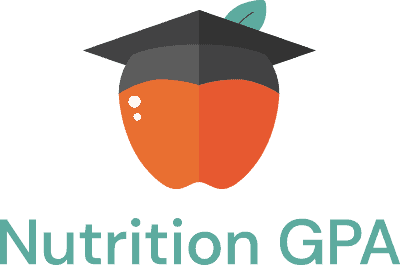If you have excess body weight, the standard advice is to eat less and move more. Of course, we all know this is easier said than done.
For one thing, it takes a lot of work to change deeply ingrained habits and behavior patterns. It’s hard to move more when our workplaces are designed for sitting and our neighborhoods are designed for driving. It’s hard to eat less when you’re constantly surrounded by hyper-palatable food. It’s also challenging to eat less when you’ve learned to use food to cope with stress or soothe your emotions.
These are all issues that a good behavior modification program can help with. But It’s also really hard to eat less when your brain is sending you the wrong signals about whether you’ve had enough to eat.
This article is also available as a podcast. Click to listen.
If you have excess body weight, the standard advice is to eat less and move more. Of course, we all know this is easier said than done.
Hunger (the urge to eat or to seek food) and satiation (the feeling that you’re full and don’t want more food) are both regulated in the hypothalamus, the most primitive part of the brain. The hypothalamus responds to hormonal signals being sent from different organs of the body via various chemical messengers. When this system is working as it should, our hunger increases when our body needs energy and decreases when it doesn’t. The result is a stable body weight.
But sometimes, the system goes awry. Dr. Gabriel Smolarz is an endocrinologist specializing in the treatment of obesity. Here’s how he explains it:
“The hypothalamus is receiving all of these different inputs and processing the situation to then say: Should we eat? Should we not eat? Should we stop eating? We conclude that there’s dysregulation when the gas tank is full, but the hypothalamus is indicating an empty tank.”
If your brain is receiving the wrong signals about whether or not you need food, this is obviously going to make it much more difficult for you to eat less.
Are genetics to blame for obesity?
Dysregulation of appetite signals can be due to genetics—similar to the way you might inherit a dysfunction in your body’s ability to regulate your cholesterol levels or blood pressure. This may be at least part of the reason that obesity, like high cholesterol, runs in families.
Of course, our genetics haven’t changed that much in the last 100 years, while the incidence of obesity has skyrocketed. But genes aren’t always destiny. Sometimes they need an environmental trigger to unfold. What’s changed in the last 100 years is not our genetics but the environmental triggers.
What’s changed in the last 100 years is not our genetics but the environmental triggers.
We are more sedentary than previous generations. And at the same time, our food supply has gotten cheaper, more convenient, and it’s processed in ways that make it more tempting. The combination of dysregulated appetite signals with cheap and abundant high-calorie, hyper-palatable food is clearly a recipe for disaster.
This situation can be compounded by something referred to as metabolic adaptation, in which the body responds to caloric restriction by burning fewer calories and amping up the urge to eat. Here’s Dr. Smolarz again:
“If you are fortunate enough to achieve a meaningful weight loss, it’s really hard to keep that weight off. It’s basically the body saying, Oh, no, this is not good. Higher weight is better, safer, and more conducive to reproduction and survival. So after the weight loss, you’re hungrier than you were before, because of this hormonal part of metabolic adaptation.
“And then the second half of this story has to do with how much energy you burn at rest. The body says, We’re now going to conserve as many calories as we can by burning less. So if it took you a hundred calories to walk around the block, your body says, Well, we can now do this in 80 calories.
“So you’ve increased your efficiency. And if you want to continue to lose weight, you need to consume even less than you did just a few weeks ago, because now your resting energy expenditure is lower than it was before.”
One of the reasons that I advocate a slower pace of weight loss than is commonly prescribed is to minimize the unwanted metabolic adaptation. However, those with a long history of crash or yo-yo dieting may have lasting effects that make weight loss increasingly difficult.
While it’s true that if you eat less you will lose weight, it’s not an even playing field.
So while it’s true that if you eat less you will lose weight, it’s not an even playing field. One person might be able to lose a couple of pounds by cutting out a dessert here and there and taking a walk after dinner. But some people have to eat a lot less (or go around feeling hungry all the time) in order to lose a pound or maintain a lower body weight.
Is there any way to fix appetite dysregulation?
There are a variety of medications that work in the hypothalamus to regulate appetite signals. For those suffering from a dysregulation of appetite, where the hunger signals are out of sync with what their bodies actually need, these medications can make it easier to eat less and lose weight.
Several drugs have been approved by the FDA for the treatment of obesity. Some of these are similar to drugs that have been approved for the treatment of other conditions, such as Type 2 diabetes, but have been found in clinical trials to be effective in the treatment of obesity as well. (The two conditions frequently occur together.)
In the past few months, there’s been a lot of buzz about a Type 2 diabetes drug called semaglutide, which appears to be even more effective at promoting weight loss than some of the drugs approved to treat obesity.
In the most recent study, participants received intensive behavioral counseling along with a weekly injection of semaglutide or a placebo. Those receiving the behavioral counseling and a placebo succeeded in losing an average of 5% of their body weight … which is no small accomplishment. However, those who combined intensive behavior modification with the medication lost over 15% on average.
Important!
Disclosure: In addition to his work as a clinician and on the clinical teaching faculty of Rutgers Medical School, Dr. Smolarz also serves as Medical Director for Novo Nordisk, the company that developed semaglutide.
Why are these medications so under-utilized?
When you consider the prevalence of obesity and its enormous costs to individuals and society, you might think that these drugs would be more widely used.
If a person develops high blood pressure, high cholesterol, or high blood sugar, their doctor will probably suggest that they make some changes to their diet and get more exercise. And for some people, lifestyle change is sufficient to solve the problem. But for others, often those with a genetic predisposition, even the most diligent efforts with diet and lifestyle don’t fix it. At that point, the doctor will likely prescribe a medication to help modulate whatever aspect of their metabolism is out of whack.
Similarly, when a person has excess body weight, their doctor (if they mention it at all) will usually suggest that they eat less and move more. But if they are unable to get their weight down, rarely are medications discussed.
As pharmacist and obesity advocate Ted Kyle points out, 88% of people with Type 2 diabetes are prescribed medication to manage their blood sugar. And yet, anti-obesity medications are prescribed to only 3% of those with obesity. (And that’s doubled in the last ten years.)
I asked Dr. Smolarz why he thinks this is.
“I went to an allopathic medical school and a mainstream internal medicine residency program. I did a mainstream endocrinology fellowship. What I like to call essential obesity was not part of any curriculum. This dysregulation of appetite was not taught.
“Obesity is the most prevalent non-communicable disease on the planet. And we learn more about bioterrorism and how to use potassium iodide than how to use medicines in this regard.”
Not everyone who needs to lose weight needs an anti-obesity medication, of course. Dr. Smolarz describes how he evaluates patients seeking treatment for obesity.
“You want to look for secondary causes of extra weight first, Are there other medicines that the person is taking that promote weight gain?
“There are also underlying medical conditions that could be causing this. An underactive thyroid can contribute to weight gain and be a cause of an inability to lose weight. So that’s something we would check for. Is this person perhaps an emotional eater or traumatic eater? Maybe it’s a sleep problem.”
In addition to treating any underlying medication conditions that may be contributing to the problem, the first line of treatment is still to modify the diet, increase physical activity, and address behaviors that may be leading to overeating. But that’s not where treatment always ends.
Dr. Smolarz:
“There is no blood test that tells me you have an appetite signaling problem. I wish there was something like that. You cross things off the list, and then you say, Well, it’s not this, it’s not that. OK, I’m left with this. And so let’s approach that.
“The first part of the treatment is to ensure three key pieces: optimal nutrition, increasing physical activity, and behavior modification. I say someone is a candidate for medications when those three elements have been tried or are being currently tried, but we’re not seeing weight come off. “
However, even if appetite signals are out of whack, medication alone won’t solve the problem. Nutrition, physical activity, and behavior modification still need to be part of the program.
Dr. Smolarz:
“The medications are enabling those fundamentals to be even more successful. The medicines allow you to tolerate a reduced caloric intake. So it’s one thing to say, You need to eat salad twice a day. You may be very hungry at 1200 or 1500 calories a day. The medicines that act as appetite suppressants make that feasible.”
Like all medications, the drugs used to treat obesity have a risk of side effects. Patients and doctors need to weigh the costs and benefits of the various medication options and select the one that is the best match for their situation. And this may be another reason that family doctors are reluctant to prescribe anti-obesity medications.
Here’s Dr. Smolarz again:
“All the drugs work a little bit differently, so it’s a bit of a challenge to master it all. Then the last piece is [the] fundamental misunderstanding of obesity as just a failure of willpower, that people just need to eat better and they should get a handle on their obesity. That’s just not the clinical reality.”
How to find help
If your health is at risk because of excess body weight and you and your doctor feel you have run out of solutions, you might consider consulting with a practitioner specifically trained in obesity medicine, which involves much more than just writing prescriptions or scheduling bariatric surgery.
The American Board of Obesity Medicine trains and certifies physicians in obesity management. Their website includes a directory where you can find Diplomates by location. The Obesity Medicine Association is another resource that can help you locate clinicians with specific training in obesity medicine.
Originally published at QuickandDirtyTips.com

 Q. I have a friend who just quit smoking. He’s started to gain the typical weight and went into his local GNC yesterday to get some supplement that’s supposed to speed up his metabolism. He already has a fairly good diet. I told him he might be better off just letting his metabolism balance itself out, rather than substituting one stimulant for another. Any ideas on how he can naturally adjust better?
Q. I have a friend who just quit smoking. He’s started to gain the typical weight and went into his local GNC yesterday to get some supplement that’s supposed to speed up his metabolism. He already has a fairly good diet. I told him he might be better off just letting his metabolism balance itself out, rather than substituting one stimulant for another. Any ideas on how he can naturally adjust better? 
